5. 3. 2022
Michaela Mertová and skyrunning: Heaven to the touch
She does not consider herself a professional athlete, yet she runs 6,500 km per
year. In addition, she pedals 8,000 km and hikes another 1,000 km. Since she
was 25 years old, when Misha Mertová, a native of Lanškroun, started running,
she has conquered many a mountain peak in this world. As a running coach, she
also advises her trainees how to start running, where to find motivation and how
to combine sports with normal daily duties – read on in this exclusive
interview for our magazine…
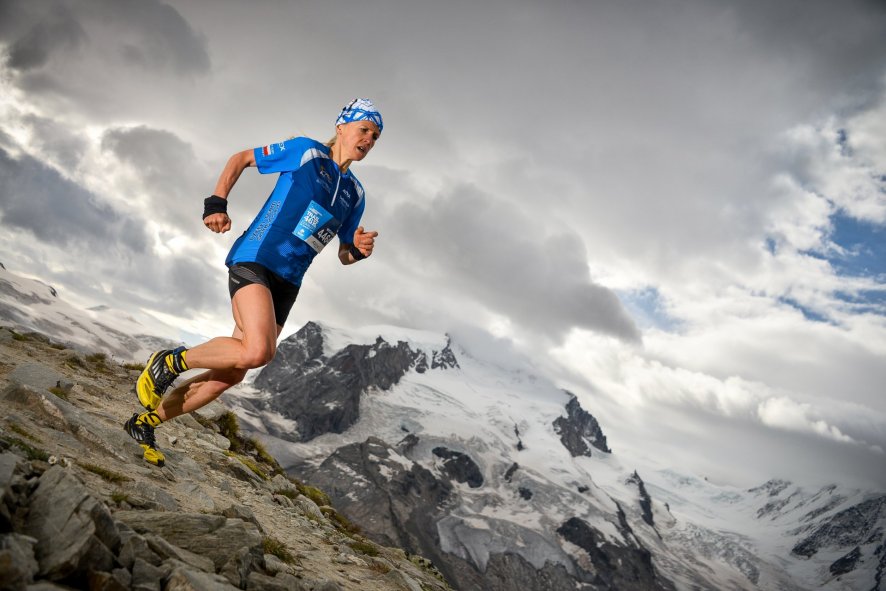
Although skyrunning is far more popular now than it was when your name first became known in Czech circles and abroad, not everyone knows what exactly it is about. Will you please familiarize our readers with this specific discipline?
To put it very generally, it is a run in the mountains. In very high mountains... This discipline has been known in our country since about 2013 when the official skyrunning association was established. And it is actually a long-distance race, which includes running up and down or vice-versa. The run takes place almost exclusively in terrain, the sum of the elevation gain (vertical meters) should exceed 2,000 m, and especially it should start at an elevation of least 2,000 m above sea level. Of course, this is not always fully achievable, but there are alternatives for countries hosting races that lack such high mountains.
Do you remember your worst (longest) and hardest race? What was its elevation gain?
Very difficult question. Each race is a little different and to say what was the "hardest"…maybe the longest. Last August, I ran a race in France, around Mont Blanc, one of the routes of the famous UTMB (Ultra Trail du Mont Blanc). CCC, a track leading from Courmayeur in Italy, via Champex in Switzerland to Chamonix in France (hence CCC). It was a 100 km-long race with an elevation gain of 6 km. I ran it in just slightly over 16 hours. So that was definitely the longest time.
And how did it turn out? Did you manage to place?
Overall, I was 22nd among all women and third in my age category.
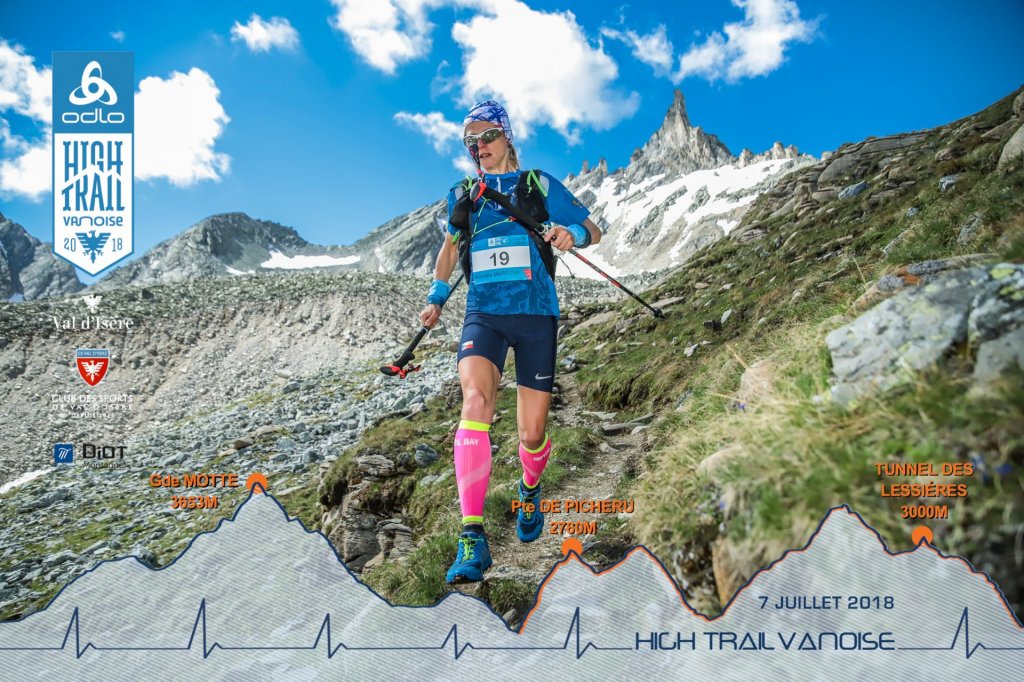
What led you to run in the mountains, at such distances and, in fact, rarely in idyllic conditions?
I see this as having developed gradually over time. I started with a relatively atypical marathon, and that's not entirely optimal. It always drew me to longer distances. I guess I'm a bit of a maximalist in a way, and it shows that when I want to run something, it's always the longest. But it took me a long time to move from a "marathon" to a so-called "ultramarathon". That means anything longer than a marathon.
And why the mountains?
From the beginning, I combined road-running with different trails. In our country, races have been run for a long time, or rather the series of races "Run to the Top", in which I’ve participated. Most routes are in the mountains or the hills, usually involving an up-and-down run. I just love the mountains and nature.
When did you start running? And what was it like in the beginning?
I started at about the age of 25, and as I mentioned, running long distances. I was drawn by colleagues from the office who would run their route every Saturday. Once they took me with them and of course I immediately "lost my lungs", and after 2 km I had to return in disgrace. But then I went out again, my friend dragged me out to accompany her and watch her in a mountain race. It was a mountain marathon in Switzerland (Jungfrau Marathon), very well known, in fact famous, and at that time, the atmosphere captivated me so much that I decided to do it too one day. And the very next year I found myself at the starting line of the Prague International Marathon, which I completed.
Most athletes take up a sport at a young age. Is it possible to start later at the level you are at?
You can start running virtually anytime, at any age. If you start later or significantly later, you probably won't get into great representative starts, however, these runs do accommodate different age categories. There are several types of so-called "master championships" - that is, for more experienced and older athletes. What's nice about running is that you more or less don't need anything besides condition and determination. And you can start with it when finishing another sport and still wanting to continue with something else. There are people who have played football or volleyball all their lives and then started running. I actually played volleyball as a child, but I had to quit at when I became an adult. Then I didn't do anything for a long time and gradually I found out that I missed sports. Besides, running is just addictive. As a kid, I hated running, but I guess everyone did. I mean, mainly because of the way it was served up in primary schools. Because they just put us there at the start of 1,500 m and nobody told us how to run. So it hurt a lot…
What is the awareness level of skyrunning in the Czech Republic today? How many people are involved, and do you have any competition here in the CR?
I have a lot of competition. On the contrary, I think that skyrunning is currently on the rise in our country, in fact running in general. Because we are not such a large community - just a few thousand people actually run here regularly, we need not be divided according to whether we do trail running, sky running or road running. The important thing is that there is far more interest in running in general, and many more people have gotten very good at it. This means that young people are starting to get out and enjoy sports, and that we have some really great young competitors capable of competing internationally at world competitions.
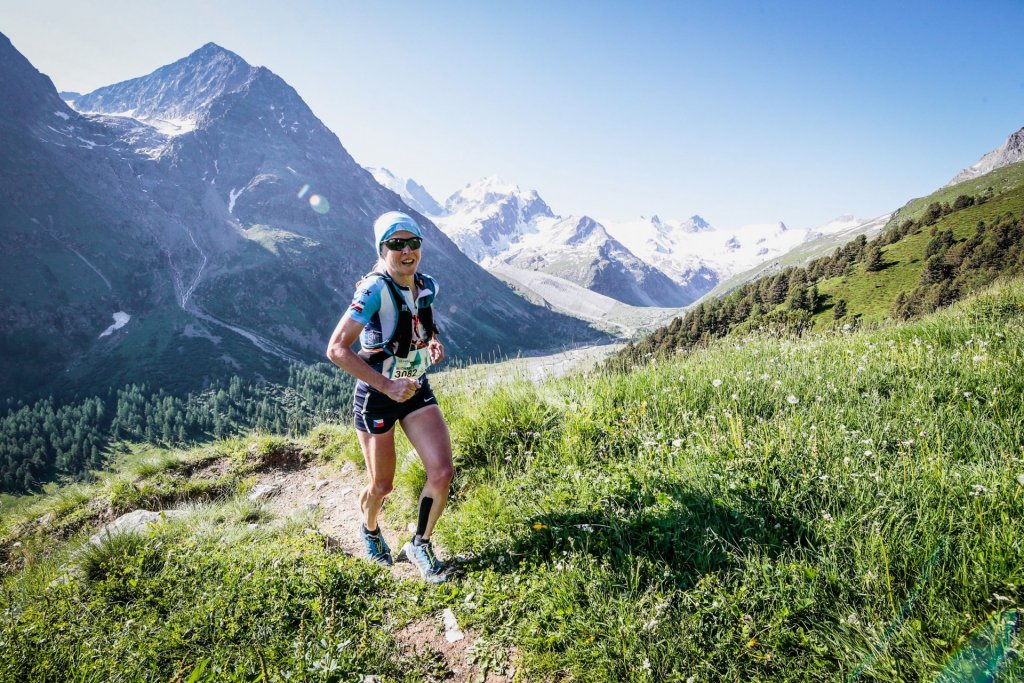
I’d like to know what the conditions are like for skyrunning here in our Czech Republic. The height of our mountains cannot be compared with the nearby Austrian Alps…
I don't think we have much to complain about here. Our only problem here is altitude. And in terms of terrain, I think our mountains are comparable to those of other countries. The races that are held here are of very high quality. Of course, we will not find a hill with an elevation gain of 1,000 m. This means one discipline can’t be held here, namely the “vertical kilometer”. Over a relatively short distance of 4 to 5 km, you have to complete a run rising 1,000 m in elevation - and well, we have no such hill. Even if we ran from Pec to Sněžka, we still wouldn't reach it. But as for the trails, there are several nice localities, such as the mountain ranges Beskydy, Jeseníky and Krkonoše. It's a short walk from my house to the Břežany Valley. This is another beautiful area with terrain either from Točná, Šance, or to Závist on the other side.
You just mentioned locations here in the Czech Republic, but you also train abroad because of the altitude. How and where do you train?
For the last two or three years, I have been going a lot to Austria, to the village of Niedernsill, staying at a guesthouse owned by a Czech, who is also my good friend. They have everything I need not only due to the training conditions - surrounded by a large plain and high mountains. The guesthouse also offers a comfortable environment and facilities. I can recommend this place to classic mountaineers, triathletes and cyclists alike. Cyclists and swimmers can train there. The guesthouse is situated relatively low, at about 700 m ASL, and the surrounding hills are over 2,000 m ASL. This means that before I reach that elevation, I have to have 10 km of uphill terrain behind me. And I rarely find that.
When you go to a race that is really very high in the mountains, do you struggle with not having enough time to acclimate? How do you deal with that?
If there is not enough time to acclimate, two approaches are given. The body begins to respond to altitude after 24 hours. This means ideally going to the place as close as possible to the start time, so that one is able to race in that 24-hour window. But this is not always realistic, because the races are usually far away and it's impossible to get out of the car and run 100 km straight away. The second option is to arrive well in advance, spend time there and acclimate properly, but this ideally takes 10 to 12 days.
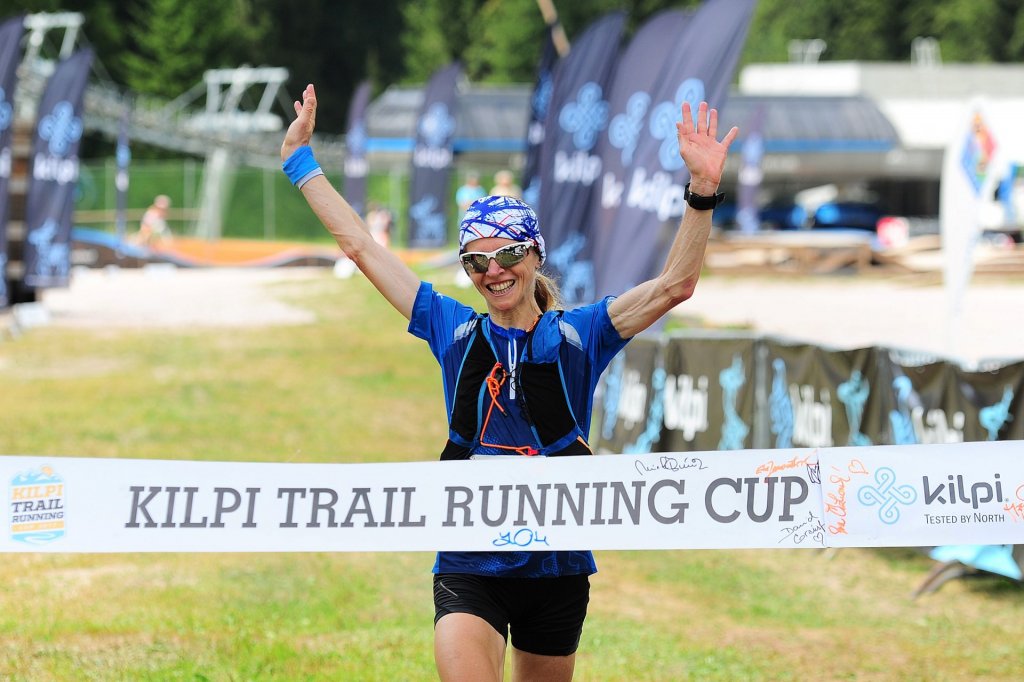
It should be noted that although to the rest of us, you are a Czech Republic representative in skyrunning marathons, you have a full-time job, and you train "only" in your free time. Is that even manageable?
It can be done, but it's actually sacrificing one thing to gain another. Basically, I'm either training or working, but I still feel like that's what fills me up. I don't feel like I'm missing something.
Readers might be interested in how many kilometers you ran last year and with what elevation gain?
I ran 6,456 km. My elevation gain was maybe around 250,000 m, but that's a very rough estimate since I really don’t keep a record of vertical meters in my journal.
But vertical meters represent an important value in this discipline…
That’s true. Because when I look at how many kilometers a given race is, I also immediately find out how many vertical meters it involves, how many hills there are and how difficult the terrain is. For example, climbing on asphalt is something completely different than on a rocky path. And running downhill entails even greater differences…
And yet your activities do not end with kilometers run. Your second favorite way to move is by riding a bicycle. How many km a year do you "pedal" on these rides?
I ride 8,000 km, and may I mention I also hike around 1,000 km per year.
And you take it as compensatory training? Would you recommend changing up the type of activity from your experience? Or is it that you're happy by yourself and don't want to spend time in public transport?
It's a combination of both; I want to be alone, and I don't like public transport. That means I'd rather ride a bike somewhere than take the bus. I hate traffic jams, which is a real headache in Prague. But for me, these activities also supplement my training, although a lot of running coaches probably won't agree with that, because some different muscles are involved in cycling. But I see it as a certain number of hours of a work-out load. When I run a long race, it's not just that I need to run, but I also need to be able to work under a load for a few hours, and it is the bike that balances these enormous “doses” in a gentler way. And I simply love it. Being alone somewhere in nature and away from cars.
And how much time do you spend altogether on compensatory training and relaxation?
When it comes to compensatory training, it's usually Pilates or some exercises based on Pilates and yoga. Over the last year, this involved around 150 hours.
That’s as much as a lecturer workload.
Well, it is true that this number also includes part of the hours that I actually devote to my running trainees. Because compensatory training is an integral part of running and cycling training. After all, running is quite a one-sided sport.
And especially running in the field places far greater demands on variability and coordination, elevation profile changes (running up or down), surface changes (unpaved roads, mud, stones), fast changes of direction, and so on. For all these reasons, it is good to have a very strong core. And I find Pilates the ideal strengthening exercise. It works only with one's own weight and does not lead to a significant increase in muscle mass, which can be a bit of a handicap for runners. Every muscle needs a robust blood supply.
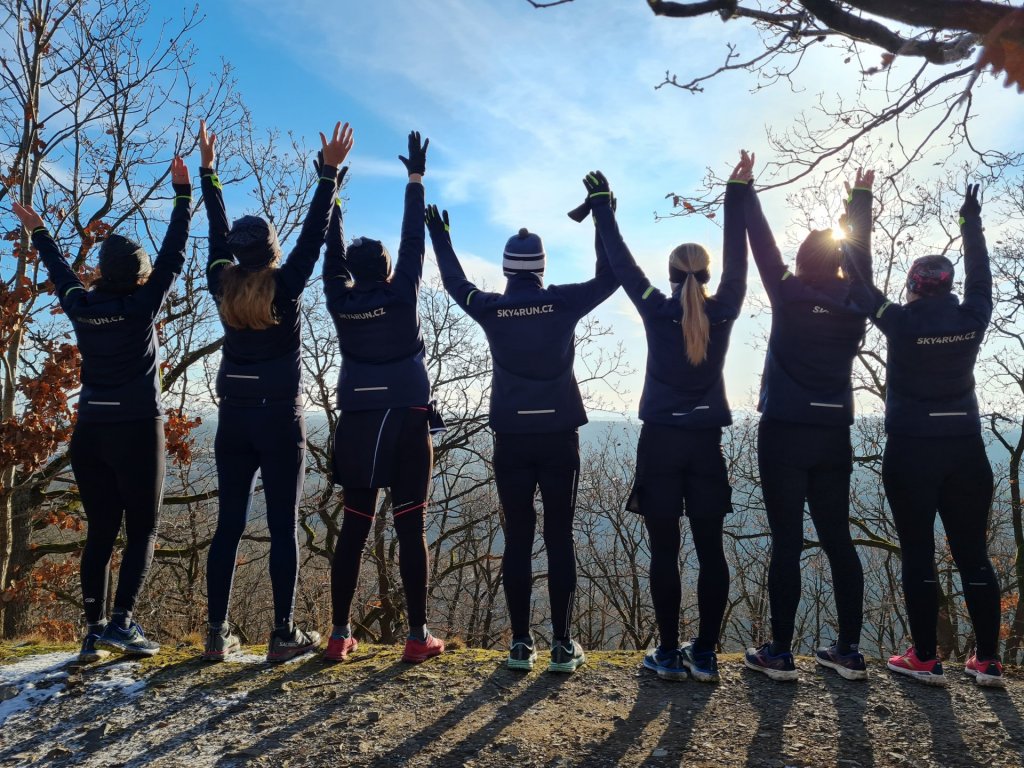
How do you manage it all? How many hours do you have in a day? Do you really live in 24/7 mode?
Unfortunately, even my day has only 24 hours. Sometimes I really have to manage my time - one day I may be busy from morning to evening, including my full-time job at Hewlett-Packard, where I take care of channel marketing. But if something drags on too long or deviates, it throws me off balance and can interfere with my general well-being. Then there are days when it's looser. And in a way, the Covid-19 pandemic also helped me, whereas, since we now work a lot from home, I enjoy significantly more flexibility, and it relieves me of the commute between the office and home.
… And you can train abroad as well.
Exactly!
Today, you are already very active in training hobby runners. What is it like to pass on experience and help people fulfill their dreams and goals?
I probably would avoid using the term “hobby runner”. In our environment, it's a bit degrading, because these are people who want to advance, and even for them, the sport and achieving goals are as challenging as for a professional, who, on the contrary, has much more time to do so. Hobby runners have to set aside time for training in their busy schedules, so it can be rather difficult for them. I have to say for myself that training others gives me a completely different perspective and helps me in a kind of self-reflection. I am more aware of what is really important for running and how to work with the body. And I really enjoy seeing people improving, or when they achieve something and then say after the race that they liked it and that they are satisfied. I have, for example, a group of female runners, for whom it is also a very social affair. They like to meet up and enjoy sports together, but they also improve. And that's just fine.
This partially answered the question of what type of clients appeal to you. Do you choose trainees by how much sense it makes to do so?
For me, it is crucial to start by meeting a specific person to find out the expectations and the desire behind it. Or not exactly the desire, but what the goal is...what place this person wants to reach, his or her willingness to do what it takes to get there, and what is expected from me. Honestly - I want to dedicate my time mainly to people who know why they do it and where they want to be.
Which race do you consider the most difficult and why?
That’s really hard to assess. According to the proportions, a race can seem very difficult, but when it fits you, it is actually easy for you. And vice versa - even a relatively simple race can be quite difficult for you. For example, last year's race at the World Skyrunning Championship was "only" 70 km, but it was so technically difficult for me that I was digging down to the bottom. It was a wonderful race, with beautiful Pyrenees scenery and flawless organization, but the fact that there were passages that were almost like mountain climbing was very challenging for me. Still, I'm quite glad to have run it and gotten out of there :) I got through it, but when I finished, I reasoned that it was probably not my kind of race.
What awaits you this season? What is your highest goal in the years to come? Is Covid-19 a big obstacle to events?
I think that the organizers have already come to terms with having to search for ways to make their race happen even in these difficult conditions. After all, they have learned a bit from last year. At the moment, I have a problem with my setup, realizing that I am no longer the youngest, and I am looking for longer, slower races. And I'm gradually moving into the role of trainer and coach. Anyway, I plan to run two to three races this year. One should take place in early June in Austria, that is 85 km. Then in early July, I would like to run a race in Switzerland in the area of St. Moritz, and my dream is to run around another alpine mountain. Last year, I went around Mont Blanc and this year it could be Monte Rosa, but I will see, I have not seen the terms of the race yet.
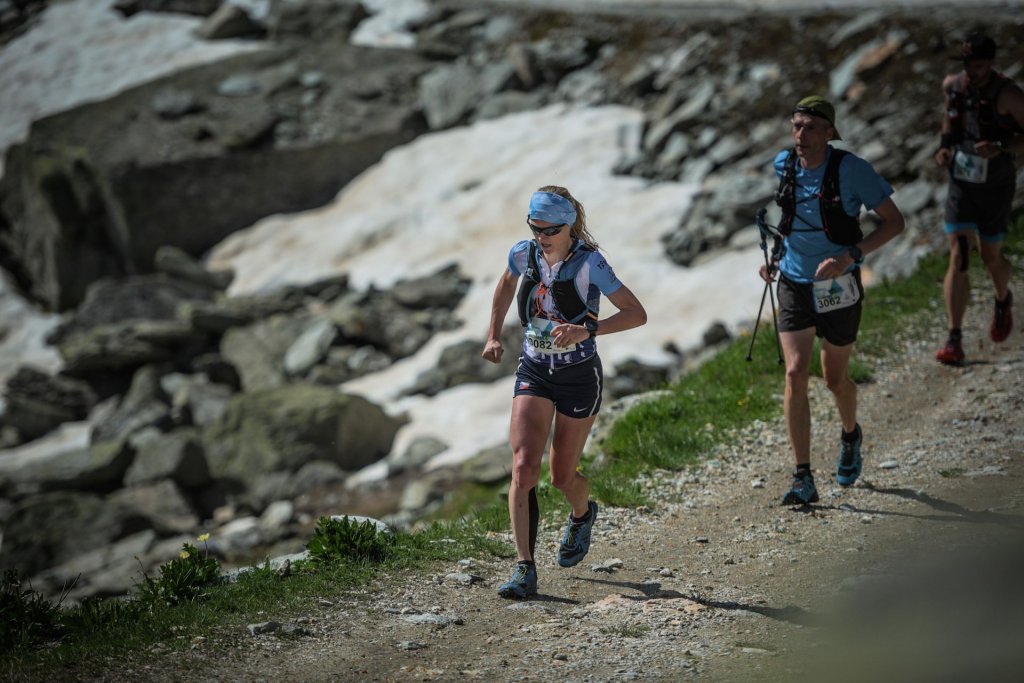
What advice would you give to people who might like to get started running but are still procrastinating? They may have a block or a concern keeping them from getting the ball rolling…
Once they figure out why they want to do it, they already have the hardest part behind them. Because with the right motivation, they stop concerning themselves with what people say around them. It doesn't matter what others think, it only matters how the person feels. So first it is essential to find out why they want to do it and then dig right in while trying to avoid beginner's mistakes. For example, at the beginning, I thought that I could manage 8 km… Yes, most of us can do it, the question is how, and how our bodies will feel afterwards. It's good to find out what our starting position is, point zero. If I'm short of breath when I go up the stairs, I won't start with a fast run, but with an Indian run, for example. That means alternating between running and walking. It's nice to start training with a friend or in a group. And it is vital to share a goal with somebody. If you explain to someone daily why you didn't do something, in our case why you didn't go for a run, you will quickly find that finding excuses may be harder than actually getting out there and doing it.
Thanks for the interview.
Michaela Mertová
Personal records
Marathon: 2:47:17
Half marathon: 1:20:22
10 km: 37:27
Greatest successes
- Czech Skymarathon Champion 2014, 2016
- Czech Ultra Skymarathon Champion 2015, 2018, 2019
- 3rd place at the European Championships in the Ultra Skymarathon
- 6th place at the Skymarathon World Championships
- 9th place at the Ultratrail World Championships
- podium placements at World Series of Skyrunning
Running workshop with Michaela Mertová
April 6 at 5:00 p.m. | April 13 at 5:00 p.m. | April 21 at 1:00 p.m. | April 27 at 5:00 p.m.
Want to start running but don't know quite where to begin? Would you like to improve your running technique or learn helpful tips on how to run in a healthy and effective way? Join the running workshop prepared especially for DOCK by ultramarathonist, coach and skyrunning champion, Michaela Mertová.
In a total of four lessons, she will guide you through the complete preparation for your ideal running start: from complete basics such as the right warm-up, technique or the athletic alphabet - all in our complex on the running track - through short sprints and progression runs to a more continuous longer run in the nearby surroundings that everyone can handle. Everything will be accompanied by instruction about forms of training, basic principles of running and appropriate compensation for demanding movement and regeneration.
Reserve your spot in one or all of the lessons, and don't miss a great opportunity to try something new.
Write to dock@crestyl.com, subject: Running Workshop, and state your name and the dates of the lessons you are interested in attending. It is possible to participate in any number of lessons, since they will only loosely link to one another. Don’t hesitate to register - the number of participants is limited!
For more information, follow us on social networks.